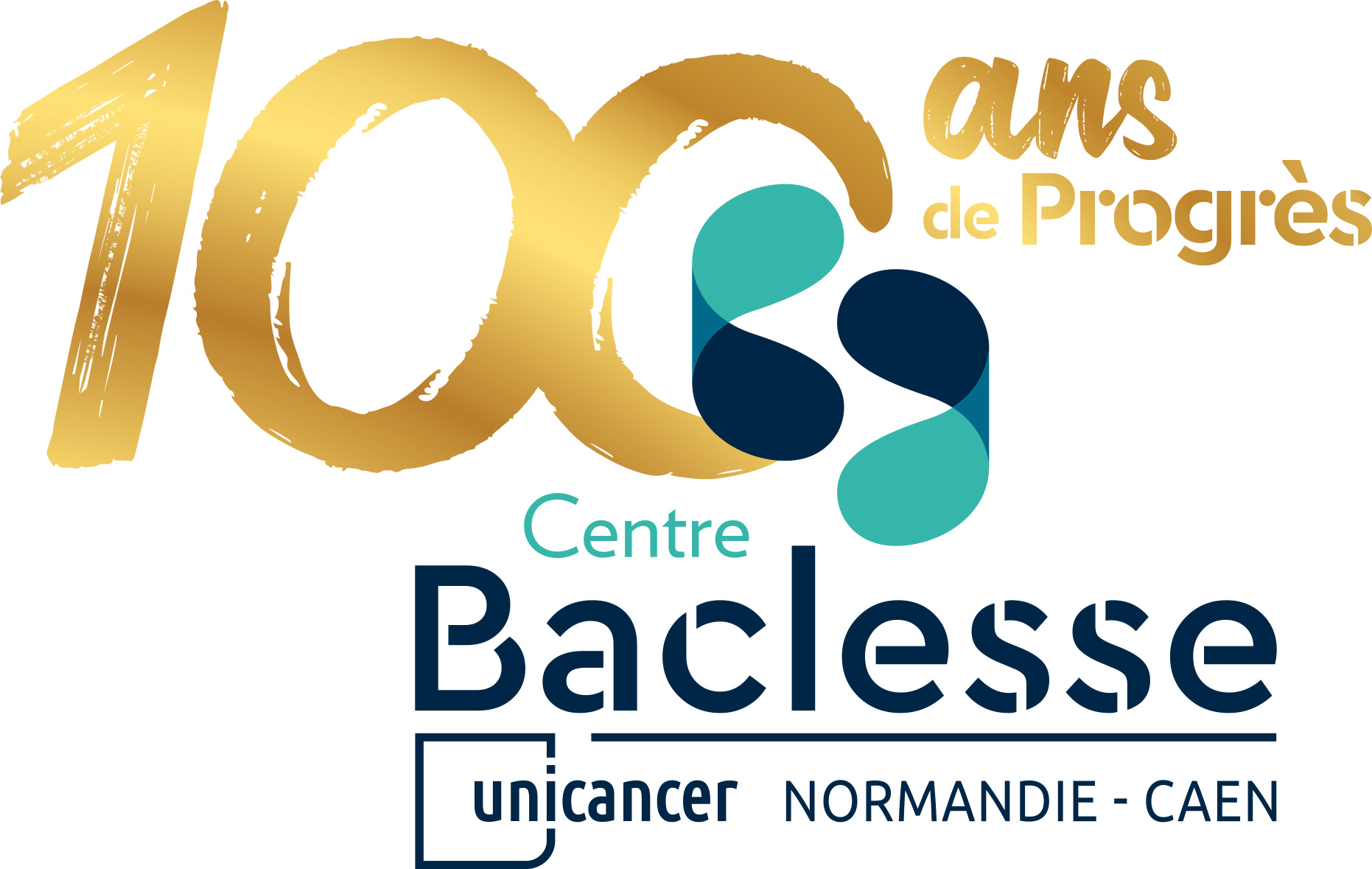Outpatient consultations
Secretaries
- Opening hours: from Monday to Friday, 8am to 5pm
- Telephone: +33(0)2 31 45 51 07
- Location: at garden level, in the radiotherapy department
The team
- Head of department: Prof. Jacques Balosso
- Head of the brachytherapy unit: Dr Marlon Silva
- Head radiation technician: Magali Micaud
- Radiation oncologists: Dr Delphine Lerouge, Dr Marlon Silva
Hospitalisation
Conventional hospitalisation
- Opening hours: the department operates on a 24-hour basis
- No visits are permitted
- Hospitalisation secretaries: from Monday to Friday, 8.30am to 4.30pm. Tel: +33(0)2 31 45 51 41
- Nursing office: +33(0)2 31 45 50 50 ext. 53 72
- Location: 7th floor in the controlled zone
Missions
The department treats different cancers using a specific radiotherapy technique called brachytherapy. It involves placing the source of radiation that is to treat disease in direct contact with or even inside the tumour, hence improving dose distribution. This technique enables almost all healthy tissue around the tumour to be spared and to considerably increase the dose administered to the tumour.
Brachytherapy is used exclusively to treat localised prostate cancer, or in complement to external radiotherapy for gynaecological cancers (cervix, uterus, vagina). It also enables certain skin cancers to be treated (face, hands, etc.). There are other indications.
Treatment is generally short and can be conducted as outpatient care or during hospitalisation for a few days. Insertion of devices to introduce the source of radiation is generally conducted under general anaesthesia or rachianaesthesia.
Healthcare offer and expertise
Brachytherapy using iodine-125 seeds for localised prostate cancer of positive prognosis, as an alternative to surgery or external radiotherapy. Sources are installed in the prostate under general anaesthesia during 48-hour hospitalisation.
High-dose brachytherapy for prostate cancer of intermediate prognosis, in complement to external radiotherapy. A single session under general anaesthesia during 48-hour hospitalisation.
Brachytherapy for the salvage treatment of local non-metastatic recurrence of prostate cancer initially treated by external radiotherapy. Two applications at one or two-week intervals of high-dose brachytherapy, each time involving 48-hour hospitalisation.
Brachytherapy of localised penile cancer as an alternative to non-conservative surgical exeresis.
High-dose brachytherapy in 4 fractions by personalised endovaginal applicator for cervical cancer. This treatment is performed over a short two-week hospitalisation after chemotherapy/external radiotherapy which is the mandatory initial treatment for this condition.
High-dose brachytherapy of the deep vagina in 4 fractions by standardised endovaginal applicator after hysterectomy for uterine cancer. Outpatient treatment in the form of sessions.
Salvage vaginal brachytherapy after colpo-hysterectomy for uterine or vaginal cancer. Treatment is conducted using a personalised applicator. The number of sessions varies case by case over 1-week hospitalisation. Installation is conducted under general anaesthesia.
A number of small (face, hands) skin cancer localisations are also treated by high-dose brachytherapy in repeated applications. This technique requires the use of personalised applicators which are produced via 3D printing for each patient.
The brachytherapy unit at the Centre François Baclesse is the only unit to propose this technique in Normandy.
The department’s equipment and facilities
- High-dose rate brachytherapy source projector (HDR)
- Equipment for the installation of iodine-125 seeds to treat prostate cancer
- 4 brachytherapy hospital beds in the conventional hospitalisation department on the 7th floor
Results
Activity data
- Number of brachytherapy sessions: around 650 per year
- Number of brachytherapy consultations: around 95 per year
- For around 240 patients treated per year
Research themes / Projects
At local/regional level: Centre François Baclesse brachytherapy unit and MDTs involved (Urology, Gynaecology, Dermatology):
- Development of complex personalised applicators by 3D printing based on 3D scan imaging
- Research into predictive factors in order to optimise treatment (improvement of the benefit/risk balance)
- Development of partial breast radiation by brachytherapy
Dispensed training
Initial training: the unit hosts students training in all professions associated with brachytherapy: radiation technicians, nurses, medical physicists, young doctors during their specialisation in radiation oncology, etc. Lectures are given at the nursing school and the radiation/radiology technician school.
Continuing education: brachytherapy is a highly specialised and relatively unknown activity, which can lead to action in training or the provision of information as part of the centre’s teaching activity.

